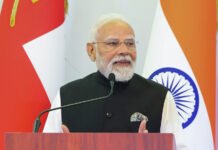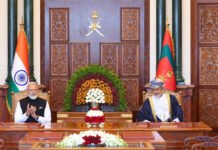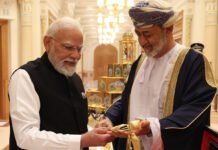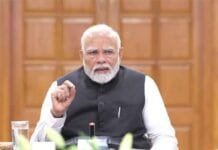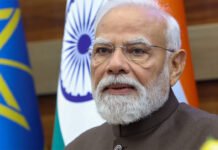
INVC NEWS
Washington, DC — : India-US ties are undergoing scrutiny but remain resilient, driven by a foundation of strategic trust, defense cooperation, and diplomatic continuity. Experts on international relations, during a high-level online panel hosted by the Centre for Land Warfare Studies (CLAWS), rejected claims of a transactional shift and emphasized that both nations are on a path of long-term strategic partnership.
This focused discussion titled “India and America: Discussion on a Transactional Relationship” brought together leading minds from Delhi and Washington’s top think tanks. Despite current geopolitical headwinds, participants stressed that the India-US relationship is built on mutual respect, shared democratic values, and regional stability, not fleeting transactional gains.
Defense and Strategic Continuity at the Core
Senior fellow Elizabeth Threlkeld from the Stimson Center, Washington, underlined the durability of India-US relations, especially after events like the Galwan Valley clash in 2020. “Even after the Galwan crisis, what we saw was not deceleration but acceleration in defense cooperation between New Delhi and Washington,” she said. According to Threlkeld, this pattern showcases that both nations perceive each other as long-term allies rather than tactical collaborators.
She further pointed out the upcoming Quad Summit as a vital avenue for advancing mutual goals in the Indo-Pacific, boosting joint defense exercises, cybersecurity cooperation, and resilient supply chains in critical sectors.
Indo-Pacific Stability a Shared Priority
Another prominent voice in the panel, Daniel Markey, a South Asia expert at the Stimson Center, discussed the broader strategic picture, especially concerning regional peace and deterrence in South Asia. He remarked, “No key stakeholder — India, Pakistan, China, or the US — desires a renewed Indo-Pak conflict. This consensus itself contributes significantly to regional stability.”
Markey’s comments reflect the growing understanding between New Delhi and Washington on containing threats and preserving peace in the volatile Indo-Pacific region, particularly as Beijing seeks to expand its influence.
India-US Strategic Partnership Is Not Just Transactional
Aparna Pande, a senior research fellow at the Hudson Institute, strongly rebutted the notion of India-US ties being merely transactional. “US policy frameworks have undergone numerous transitions over the last 70 years,” she explained, “but throughout those changes, the India-US relationship has endured and adapted.”
Pande added that India has been a major recipient of US strategic goodwill, especially since the 1990s. “For over 35 years, the US has viewed India’s rise as beneficial — economically and strategically. This is not charity, but alignment of interests,” she said.
Strategic Convergence in Technology and Defense
Beyond defense, experts pointed toward emerging convergence in technology, space, AI, and clean energy cooperation. Washington’s push to include India in global semiconductor supply chains, support for India’s civil nuclear advancements, and shared goals in artificial intelligence research represent a broader alignment beyond military cooperation.
India’s inclusion in the Initiative on Critical and Emerging Technologies (iCET) — a framework co-created with the US — symbolizes this deepening engagement. Under iCET, the two countries aim to co-develop advanced weapon systems, dual-use technologies, and ensure resilient digital infrastructure, especially amid rising global cyber threats.
Diplomatic Maturity Rooted in Mutual Interests
The CLAWS panel highlighted that bilateral diplomatic mechanisms between India and the US are stronger than ever. From 2+2 ministerial dialogues to counter-terrorism task forces, both nations now operate on multiple parallel tracks of coordination, making the relationship too layered to be defined as transactional.
Experts agreed that recent geopolitical events, including Russia’s invasion of Ukraine and increasing China-US competition, have only solidified India’s role as a key strategic partner for the US in balancing regional power dynamics.
Mutual Trust Fuels Future Cooperation
Despite public discourse occasionally describing India-US relations as issue-based or transactional, insiders and policy architects remain confident. The strategic, economic, and diplomatic infrastructure that underpins this bilateral engagement has proven its endurance through several global crises.
With upcoming global summits, defense exercises, and renewed focus on critical technologies, the partnership is expected to move beyond traditional boundaries, shaping new age diplomacy that blends values with innovation and resilience.



